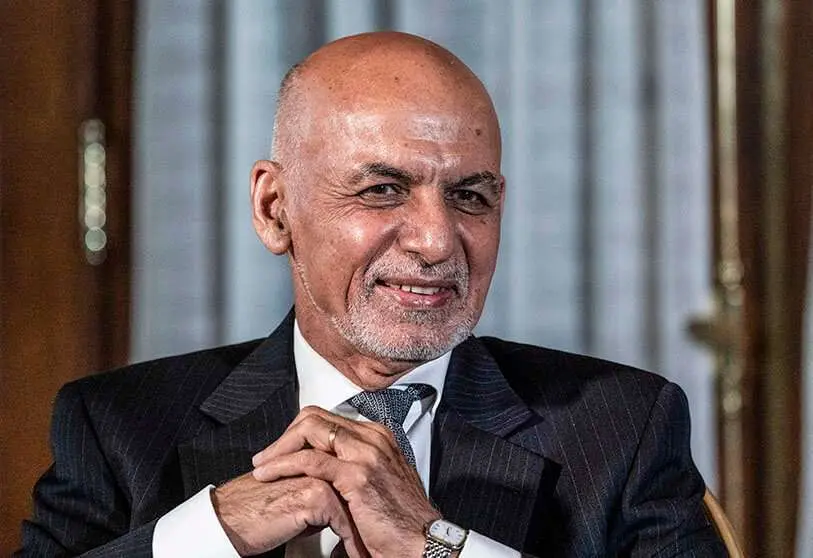Ghani blames the West for Afghanistan's debacle

The scenario in Afghanistan in 2022 promises to be complicated. Just five months ago, the world witnessed the Taliban regaining power in Afghanistan, facing very little resistance characterised by an army marred by corruption, casualties and the difficulty of recruiting soldiers. Former President Ashraf Ghani fled Kabul, leaving the country to fend for itself as insurgents took advantage of the vacuum to re-establish an Emirate.
The Doha Accords, also known as "the agreement to bring peace to Afghanistan", set a date for the withdrawal of US troops from Afghanistan after almost two decades of presence on Afghan soil. This event was to mark a turning point in the country's history, as the US was to ensure Afghanistan's stability before its withdrawal, as well as its security.

The pact with the Taliban, however, has been the opposite. The insurgents have seized power and the population, fearful of the regime, is still trying to flee Afghanistan in search of a better situation for their future. In this context, Afghanistan is now facing a severe economic and social crisis, unable to provide even basic food supplies to a significant percentage of its population.
On the other hand, the situation of women in the country is also dramatic. The imposition of the burqa, the prohibition to attend school, to work or even to travel alone are just a few examples of the measures imposed on them. Thus, the female population has been the biggest victim, losing any kind of freedom they had achieved in recent years.

Against this backdrop, Ghani, who had maintained an imperious silence for months, broke his silence in an interview with the BBC to point out that the international community, and especially the Americans, "were to blame" for the fall of the republic. He said that the main mistake Afghanistan had made was "relying on the country's allies".
However, more than a few Afghans claim that Ghani was largely to blame for the country's downfall. It is in this respect that the former president has tried to defend himself, stating that "they have every right to blame me for what they rightly blame me for, I trusted our international partnership and I followed that path (...) we all made a big mistake in assuming that the patience of the international community would last".

With the Taliban takeover, international funds have come to a standstill. It is in this context that the debate arises over the extent to which to make a deal with the Taliban, positions that so far have been opposed by countries such as France. On the other hand, the European Union continues to send significant humanitarian aid in an attempt to alleviate all the complications that the Afghan population has been experiencing since last August.
In addition, the former president points out that the Afghans did not have the opportunity to engage in negotiations with the Taliban, since the United States negotiated through its guidelines and leadership.

"We never had the opportunity to sit down with the Taliban. Ambassador Khalilzad sat down with them; it became an American problem, not an Afghan problem. They erased us," he said during the interview.
Even so, Ghani has also confessed that the fall of Afghanistan is also due to a "failure of Afghan leadership" caused by the lack of resistance of Afghan troops who "did not resist" against the Taliban.

In addition to this, within the debacle that the country has experienced during these months, Ghani continues to make a point of denouncing that he has been "a scapegoat" and now his work "has been destroyed".
Whether or not Ghani's work has been destroyed, the current situation in Afghanistan is critical. The country begins the year with multiple open crises and few answers as a result of years of neglect. Analysts such as Ahmed Rashid point to the need to change the narrative or "prepare for the worst". It is in this sense that he points out that the paradigm shift must start with providing security for the population, something that the Taliban have already shown they are not capable of, but that neither "the military nor their political parties" would have been able to do either.








